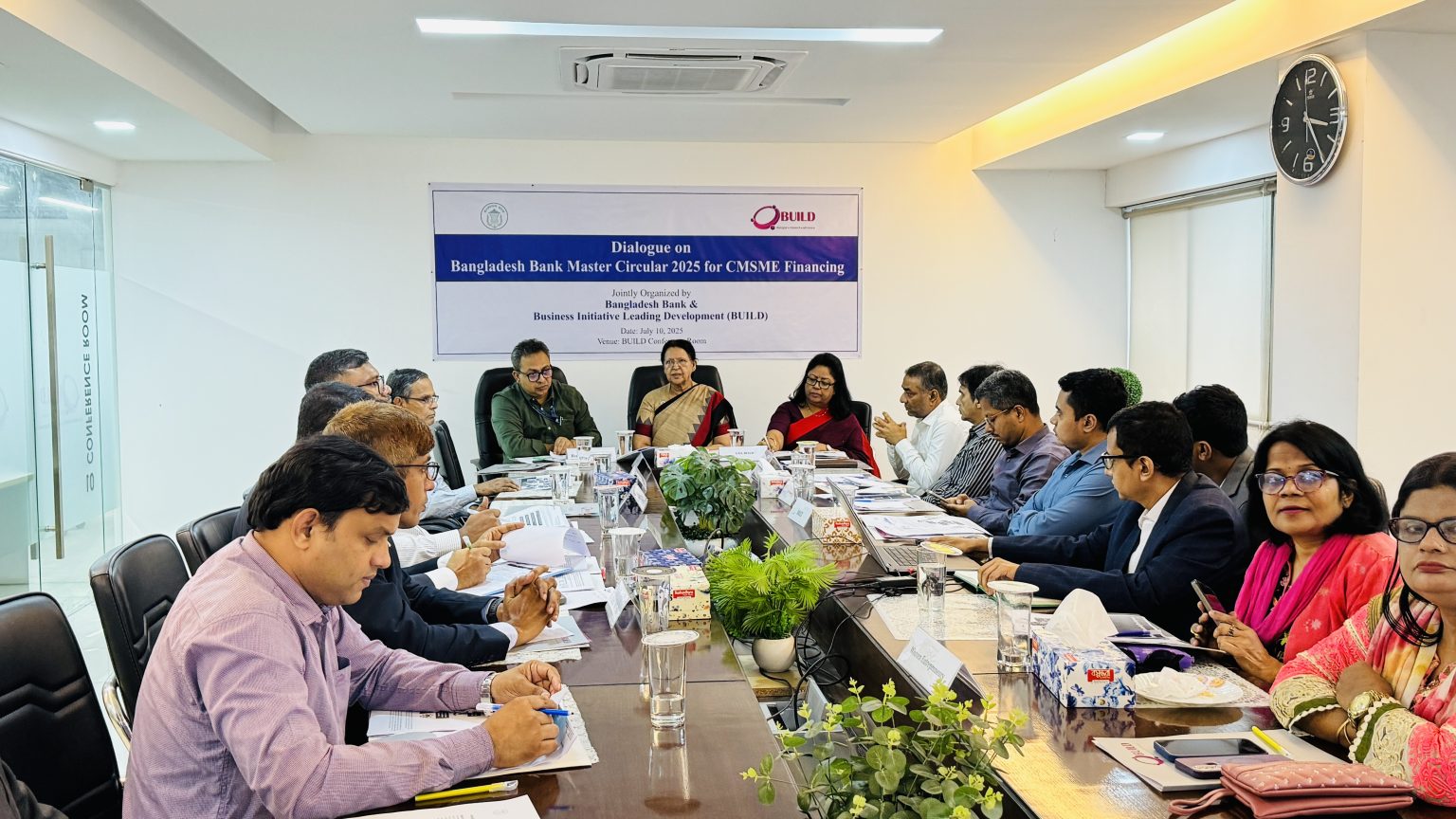Bangladesh Bank’s newly issued CMSME Financing Master Circular 2025 has been welcomed by industry insiders for introducing measures to ease access to finance for small and micro entrepreneurs, particularly those operating informally, alongside women-led enterprises and new ventures.
The updated circular was the focus of a policy dialogue jointly organised by Business Initiative Leading Development (BUILD) and Bangladesh Bank on 10 July at the BUILD conference room in Dhaka. Speakers said the new policy reflects the central bank’s commitment to strengthening financial inclusion through mechanisms such as collateral-free loans, group-based credit, extended grace periods, and cluster financing.
BUILD, a public-private dialogue platform working to bridge the gap between businesses and policymakers, facilitated the discussion to gather stakeholder feedback and present its own research. BUILD’s survey of bankers highlighted both opportunities and ambiguities within the updated circular. In particular, the organisation pointed out that while the policy allows informal entrepreneurs to secure loans up to BDT 5 lakh, the definition of ‘informal’ remains unclear. Many banks, BUILD noted, are yet to accept UBID, DBID, or Personal Retail Account (PRA) documentation as a valid substitute for trade licences.
BUILD Additional Research Director Pallab Bhattachareja and BUILD Research Associate Asif Haider presented the findings and noted that credit ceilings have been raised in all categories compared to the 2019 guidelines, with a visible preference for service sector financing over manufacturing. However, they pointed out that Bangladesh Bank’s refinancing scheme will not cover loans issued through microfinance institution (MFI) linkages despite allowing MFIs as a credit channel.
BUILD Chief Executive Officer Ferdaus Ara Begum said the circular represents a progressive move toward acknowledging the realities of informal and marginal entrepreneurship in Bangladesh’s economy. She stressed the need for clarifying definitions and simplifying procedures to ensure smooth implementation at the bank level.
Bangladesh Bank Director of SMESPD Nawshad Mustafa said alternative mediums of credit, including agents and MFIs approved by the Microcredit Regulatory Authority, are now recognised channels. However, he acknowledged the need for further clarity on mechanisms such as peer organisation financing and stressed that the group lending provision remains open, though it may require regulatory guidance. He noted the PRA model is gaining traction, with monthly transactions exceeding BDT 150 crore, and confirmed loans through PRA will count towards SME lending portfolios.
Speakers from SME Foundation, BSCIC, PKSF, and the Ministry of Industries welcomed the policy’s new provisions but suggested aligning it more closely with the Credit Guarantee Scheme and exploring greater engagement with equity financing through BSEC.
Women entrepreneurs lauded the policy’s focus on them but urged more district-level awareness programmes and highlighted the need for better access for non-export sectors, often overlooked in favour of export-oriented industries.
Participants agreed that while the circular is a positive step, practical implementation and clearer guidelines for banks and entrepreneurs are essential to ensure its success. They concluded with optimism that the new policy will enhance CMSME access to finance and promote inclusive growth.


